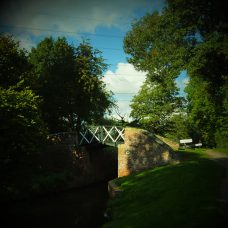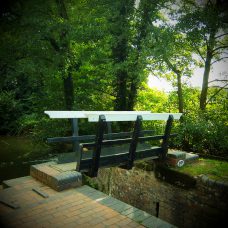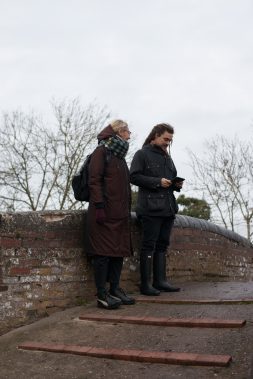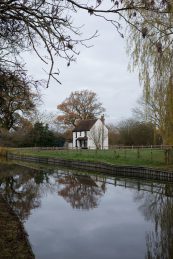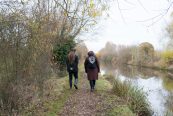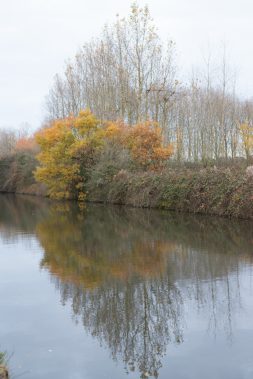A companion to the After Progress (2022) monograph, published by The Sociological Review, the After Progress Digital Exhibition is the result of a multiplicity of collective efforts to weave together collaborative and multimedia forms of storytelling that might help us envisage ways of living and dying well outside of the modern coordinates of progress, drawing inspiration from the “After Progress” symposium series. The notion of “progress” is arguably the defining idea of modernity: a civilisational imagery of a boundless, linear, and upwards trajectory towards a future that, guided by reason and technology, will be “better” than the present. It was this notion that placed techno-science at the heart of modern political culture, and it was the global unevenness of “progress” that imagined European imperialism as a civilising mission inflicted upon “backward” others for their own sake. The colonial, rationalistic, and ecocidal consequences of the story of “progress” have been laid bare, yet progress remains a ruling idea capable of governing our imaginations today. At the same time, the ruins of progress are teeming with divergent worlds and collective experiments whose stories upend modern dreams, cultivating plural value-ecologies of living and dying with others on Earth. How to intensify them? How to make them felt?In 2020, amidst the profound upheavals brought about by the COVID-19 pandemic and the many public health responses to it, we issued an open call for storytelling proposals from groups and individuals from around the world, with stories that might help us envisage ways of living and dying well outside of the modern coordinates of progress. After over 175 initial proposals from every corner of the world (by artists, activists, academics, students, and many other people from different walks of life) and a long and collaborative process of development and curation, this exhibition of over 60 “stories” in a variety of genres, media, and styles, is one collective response to that call. But it is also more than that. Composed collectively by contributors, curators, designers, and collaborators alike, all navigating and negotiating lockdowns and social distancing measures and a plethora of other restrictions on our modes of sociality, this exhibition is also a living archive, a testimony of what happened and what can still happen in the interstices of such distances, when we insist in spite of all on thinking and being together (apart). And because any “after” to progress necessarily calls for the plural, what one will find here is a veritable cornucopia of experiments in storytelling that are speculative, ethnographic, poetic, drawing on or reinventing any and every genre: SF, nature writing, poetry, aphorisms, brief dramas, short films, interactive webpages, letters and epistolary forms, fictional encyclopaedia entries, instructions, auditory compositions, and many more. They each raise and pursue their own questions and their own possibilities, thickening the present through the many disparate yet interlaced threads they weave in their divergences and tensions. This exhibition has received generous funding from The Sociological Review Foundation, as well as other sources of support from the MA Ecology, Culture & Society and the Unit of Play, Department of Sociology, Goldsmiths, University of London.
Category Archives: Reflections
Off-network low-impact living on the cut
Note: You need to download the video to your phone and view it locally. For Android phones you need Google Cardboard and VR Player (free version from Google Play) to experience this 360 video. For iPhones you can use VR ONE, Mobile VR, or the 360 VR player.
boattr MAZIzone mesh network: British Waterways as safe havens – a future outlook
Having operated the boattr, mazizone and 7061 art project over the past three years, we try to give a possible future outlook of a possible development of this research. One of the missing features of the mazizone for the boattr community was a second radio on board of the Raspberry Pi 3. Now with the last version of the Raspberry Pi this missing link is being offered on the board of the microcomputer. With two antennas it is now possible to use one as an access point and the other to network the box into a mesh network, allowing for boats passing by to sync up with each other.
This would allow for the British Waterways to become a safe haven for the bargee community, turning the canal network into a public library. The memory of the world project, aaargh, science hub, and similar projects could be hosted on such a mesh network. Currently Marcel Mars is working on a second edition of the ‘public library‘ book with Lawrence Liang. here is
Marcel Mars wrote:
“We’re seeking contributions that reflect on library as strategic and tactical ground, politically, economically, epistemologically. That engage with it from its ideation, material and institutional aspects, both historic and present. Coming at it from the angle of media theory, literary theory, political history, political economy, experimental writing. When discussing initially, our co-editor Lawrence Liang said that our first Public Libray book was on (public) library as a fighting concept, while this one should be about (public) library as dancing or laughing concept. So, this volume delves also into the imaginary and what Lawrence called carnal librarian-ship, but we wish to avoid either going into typical Borgesian imaginary of radical potentiality or into trying to imagine overhasty nostrums what public libraries need to turn themselves into to legitimate their economic existence.”
On the 26th of June 2018 the centre for postdigital studies at Coventry University organised a workshop on this very topic, entitled ‘Radical Open Access II – The Ethics of Care‘.
Organised by Coventry University’s postdigital arts and humanities research studio, The Post Office, a project of the Centre for Postdigital Cultures. Two days of critical discussion about creating a more diverse and equitable future for open access.
Radical Open Access II is about developing an ethics of care. Care with regard to:
- our means of creating, publishing and communicating research;
- our working conditions;
- our relations with others.
Radical Open Access II aims to move the debate over open access on from two issues in particular:
THE QUESTION OF ACCESS. At first sight it may seem rather odd for a conference on open access to want to move on from this question. But as Sci-Hub, aaaarg, libgen et al. show, the debate over access has largely been won by shadow-libraries, who are providing quick and easy access to vast amounts of published research. Too much of the debate over ‘legitimate’ forms of open access now seems to be about how to use the provision of access to research as a means of exercising forms of governmental and commercial control (via audits, metrics, discourses of transparency and so on).
THE OA MOVEMENT’S RELUCTANCE TO ENGAGE RIGOROUSLY WITH THE KIND OF CONCERNS THAT ARE BEING DISCUSSED ELSEWHERE IN SOCIETY. This includes climate change, the environment, and the damage that humans are doing to the planet (i.e. the Anthropocene). But it also takes in debates over different forms:
of organising labour (e.g. platform cooperativism);
of working – such as those associated with ideas of post-work, the sharing and gig economies, and Universal Basic Income;
of being together – see the rise of interest in the Commons, and in experiments with horizontalist, leaderless ways of self-organizing such as those associated with the Occupy, Black Lives Matter, and the Dakota Standing Rock Sioux protests.
Background
In 2015 the inaugural international Radical Open Access Conference addressed an urgent question: how should we set about reclaiming open access from its corporate take-over, evident not least in the rise of A/BPC models based on the charging of exorbitant, unaffordable and unsustainable publishing fees from scholars and their institutions? The conference saw participants calling for the creation of new forms of communality, designed to support the building of commons-based open access publishing infrastructures, and promote a more diverse, not-for-profit eco-system of scholarly communication. With these calls in mind, the Radical Open Access Collective (ROAC) was formed immediately following the 2015 conference as a horizontal alliance between like-minded groups dedicated to the sharing of skills, tools and expertise. Since then it has grown to a community of over 40 scholar-led, not-for-profit presses, journals and other projects. The members of this alliance are all invested in reimaging publishing. And what’s more, are committed to doing so in a context where debates over access—which in many respects have been resolved by the emergence of shadow libraries such as Sci-Hub—are increasingly giving way to concerns over the commercial hegemony of academic publishing. So much so that the issue addressed by the 2015 conference—how can open access be taken back from its corporate take-over? —now seems more urgent than ever.
In June 2018, Coventry University’s postdigital arts and humanities research centre, The Post Office, will convene a second Radical Open Access conference, examining the ways in which open access is being rendered further complicit with neoliberalism’s audit culture of evaluation, measurement, impact and accountability. Witness the way open access has become a top-down requirement – quite literally a ‘mandate’ – rather than a bottom-up scholar-led movement for change. Taking as its theme The Ethics of Care, the concern of this second conference will be on moving away from those market-driven incentives that are frequently used to justify open access, to focus instead on the values that underpin many of the radical open access community’s experiments in open publishing and scholarly communication. In particular, it will follow the lead of Mattering Press, a founding member of the ROAC, in exploring how an ethics of care can help to counter the calculative logic that otherwise permeates academic publishing.
What would a commitment to more ethical forms of publishing look like? Would such an ethics of care highlight the importance of:
- Making publishing more diverse and equitable – geographically, but also with respect to issues of class, race, ethnicity, gender and sexuality?
- Nurturing new and historically under-represented cultures of knowledge – those associated with early career, precariously employed and para-academics, or located outside the global North and West?
- Ensuring everyone is able to have a voice – not least those writing on niche or avant-garde topics or who are conducting hybrid, multimodal, post-literary forms of research, and who are currently underserved by our profit-focused commercial publishing system?
Indeed, for many members of the ROAC, a commitment to ethics entails understanding publishing very much as a complex, multi-agential, relational practice, and thus recognising that we have a responsibility to all those involved in the publishing process. Caring for the relationships involved throughout this process is essential, from rewarding or otherwise acknowledging people fairly for their labour, wherever possible, to redirecting our volunteer efforts away from commercial profit-driven entities in favour of supporting more progressive not-for-profit forms of publishing. But it also includes taking care of the nonhuman: not just the published object itself, but all those animals, plants and minerals that help to make up the scholarly communication eco-system.
Radical Open Access II is community-driven, and is being co-organised and co-curated by various members of the ROAC in a collaborative manner. It includes panels on topics as diverse as: Predatory Publishing; The Geopolitics of Open; Competition and Cooperation; Humane Metrics/Metrics Noir; Guerrilla Open Access; The Poethics of Scholarship; and Care for the Commons. The conference is free to attend and will also be live streamed for those who are unable to be there in person.
Speakers and Co-curators
Speakers: Denisse Albornoz, Janneke Adema, Laurie Allen, Angel Octavio Alvarez Solís, Bodó Balázs, Kirsten Bell, George Chen, Jill Claassen, Joe Deville, Maddalena Fragnito, Valeria Graziano, Eileen Joy, Chris Kelty, Christopher Long, Kaja Marczewska, Frances McDonald, Gabriela Méndez-Cota, Samuel Moore, Tahani Nadim, Christopher Newfield, Sebastian Nordhoff, Lena Nyahodza, Alejandro Posada, Reggie Raju, Václav Štětka, Whitney Trettien
Co-curators: Culture Machine, Mattering Press, Memory of the World/Public Library, meson press, Open Humanities Press, punctum books, POP
Below some notes and thoughts coming out of this workshop, which might be useful for the future development of the boattr project.
QUESTIONS AND ANSWERS
Questions: What infrastructure do we need (legal, societal, technical, economic)? What interventions can we make now? What libraries + havens can we build?
0. Examples (-200-0y)
- Archives: https://interferencearchive.org/ , http://56a.org.uk/archive-2/
- Tiny rehostable? services: textb/chatb/?.org, etherpad, riseup.
- Design of public unis + libraries as parts of society
- Artistic capture, framing, aligning. Paolo’s dataventions; Vincent’s new world installations
1. Interventions (0-5y)
- Distros: torrents for indexes and core/public pieces. Hardware distro for library nodes, ~50T of public/sci data.
–> curate, package for long-term archiving on 7 continents. [which libs do this now? siloing of digital coll’ns] - Add robustness: ensure there are [haven] options for each level of the stack. expand mirroring, tagging (see 2d c.o. letter) –> add flavors of archive with similar tools but different curation + audience focus
- Add transparency: track which components lock-in and which support full export
- Advisory net on legal matters, jurisdictional comparisons
- precarious knowledge as such!
- fake news, post truth.
- free software > community > exclusivity
- liberalism in constitution of free software.
- How to avoid homogenous filter bubbles? [pushing against F? parallel platforms?]
- Improve and expand lists, roadmaps, proposed futures. (including this set of Ex/Intervention/Infra/Havens)
- Find people in other places (S.V., Hong Kong)
- Decent unofficial piratelib w/ index sharing //
- Organize/ seed the idea of forking workshops that teach people how to maintain + run a functional fork of services or archives
2. Infrastructure (2-10y)
- for whom are we building this, who is/will use it?
- Archive centers + nets: Physical locations
- Robust social networks + identity: an ecosystem of decent options. –> w/ security; autonomy?; freeness; funding our community;
- Reduce the possibility of alternatives while increasing parallel implementations of same?
- Independent bug tracker for 3rd party tools/projects [even if the devs don’t track it]
- Develop highly textured coalitions: big + small public + privte insts; corps, gov, founds, chs, unis, pub libraries. Reduce sensitivity to shifts in centralized support and public sentiment.
- Develop direct-support networks connecting individuals to program channels.
3. Havens, libraries, archives, federations (5-100y)
- IArch has ~10PB. We need larger storage
- Clouds: we need haven cloud services; beyond G, MSFT, AMZN. Ex: Canada’s SSP public cloud services
- Networks: translation, mirror renewing/copying, transport, jurisdictional
4. Trust networks, advisors, Other:
- Governance… of what? Different flavors of movement: spiritual, named + gathering, local doocracy, regional cardinality, figurehead, project identity [RC], platform identity [OSM]
- Acceleration: traditional coping mechanisms totally replaced by whatever happens now instead. Unhelpful frame, projection, discussion.
- Counterproposal to minimum income: free universal access to knowledge (to improve self-learning)
- People available to advise on these issues; early web of trust for guidance, hosting, &c.
- current lists of archivists + custodians: archivists.info, wikiteam, archiveteam, cust.online, —
5. GENERAL NOTES
- Furtherfield work: Artists Rethinking Blockchain
- Blockchain-arts lab, in The Park: communal platforming and solidarity
- Hosted launch of London faircoop? Coin?
- CommonCoin: http://www.macaomilano.org/spip.php?rubrique114
- close to OpenCoop Ecosystem [for ‘next econ spaces’]
- Gary wrote Pirate Philosophy, gathered people who were interested, want more, not interested in being blindly appropriated.
- Eileen/Vincent @ Punctum joining in the aft.
6. DATA REFUGES
- value + vulnerability. most important thing to build for the next time; **Make the Lists** of what there is to archive, how often + hoe prioritized.
- List types: Organizations, Categories of information + their formats, Named datasets (+freq of updates), Specific directories/files (+scripts for snapshotting each)
- Everyone was worried; what they worried about varied widely. Needed feedback + bootstrapping to align language.
- Initial approaches; Lists by /a.Format or size/, /b.Agency producing it/, /c.Classification under fed records law/, /d.Value + vulnerability/
- Exs: Big mirroring partnersips limits d. Some gov groups only self-report their archival status, raising d.
- Subcats of d. : Legal, Tech, Political vulnerability; Use & uniqueness of data.
- Meta: what projects have tackled this? Longevity, persistence? Include gov orgs. [EDGI, Data Together] …
- Priorities: Census data is the most important, reused. But has strict legal reqs, it’s already housed + mirrored. EPA data rose to the top.
- Process: Non-hackers were given a sub-agency level org, and would hand-scrape the website. a) can Wayback capture the page? if so, Chrome plugin. b) add to queue to scrape.
- If we could have institutionalized registering of data (somehow), CDL and others would have loved that.
–> create hashes of content and metadata; human- and machine-readable; include in an institutionally-supported registry - We used “bag-it” as a toolchain for stating who had found and bagged it; and had a way to note someone had done a spotcheck. There was no formal web of trust, sneakernet, keysigning, or even workflow capture.
7. Future desires:
- Someone w/ technical chops could automate reviewing different systems to autogenerate a guess at a list.
Data.gov is a bad overview; metadata is not complete. Two people created the system that includes 95k datasets.
DAT project member proposed something that CDL did. 1. Mirror data.gov first; get volunteers to improve its machine-readable metadata. [they use Fed data.json] 2. Take easy things and put it somewhere safe (new international mirror) –> IPFS style 3. prioritize the rest… - Current status of D.R.
- Reps came from CDL, Moz, NARA, NOAA, data.gov, and m.m.m.m. more (!) DAT, COS, Dataverse, DLF, Hathi, ICPSR, LOC, New America, 10+ library networks.
- All enthusiastic and encouraging, but noone carried the torch forward. Project continues very quietly: to unpack and clean up data gathered.
8. Related tools
- DAT and SecureScuttlebutt; is there dialogue? D.R. was exhausted by its first year.
- Coders + institutions have interest; where to connect?
- Compare source verification and stamping for PanamaPapers and similar drops; groups providing, receiving, verifying are quite unaccountable. Bad actors are both hard to identify in the chain, and hard to recognize even after. [you always have the risk that any given source is bad, but hope the rest of the chain is good + ‘multiple’ sources can strengthen claims of independence]
9. Comments
- Jan: ‘you can’t get away from possibility of error when inside science you already have to trust each of the steps in the research reporting and analysis’ (needs UL chat! -sj)
- Legal risks: What happened to various projects?
- Naps, Flickr, PirateBay, YT, AARG, Gigaped, MVid, SHb, txtf, ? –> what happens in various cases; who documents outcomes; who provides roadmaps and guidance (PB: jailtime)
- Mama and Riseup: no money in service provision (it seems), nothing to learn from doing it (it seems), when things break sometimes it’s just too much to keep up + people revert to standard commercial sources. (note how each of those service providers filtered who could get service; assuming they had to be worthy of voluntary time, &c)
- SJ – There are institutions that are good at absorbing risks, including companies and foundations. But, they often don’t look risky because they don’t get in trouble. Youtube would be an example of a company that decided to not care about the legal implications of sharing videos that were not cleared in terms of copyrights.
- The wikimedians are the most aggressive enforcers of copyright. They’re not taking on risk there. Wiki absorbed risk very well when censorship threats emerged from governments. The foundation created a legal fund, and that’s been relatively successful. Sometimes risk absorbtion just looks like organizations raising their hand, who have a lawyer on staff, and saying they’ll support that.
- We maybe haven’t built the personal networks that would put the willing institutions in touch with the risk takers.
- Universities, when they’re functioning as they should, do absorb the risk of their participants. Universities haven’t done enough to get connected to public knowledge networks. Boston University & MIT
- We have not successfully built yet a network that connects institutions who care enough or absorb some of the risks and the legal costs and the activists.
- Universities and their libraries have extra protections around knowledge production and dissemination missions that they can use in this sense.
- MIT + ? set up a legal advise centre formally to help students who might get into any kind of trouble, but actually anyone with a university affiliation can access their services and they do not report to the university, thus they would defend you, not the interests of the council.
- Connecting archival libraries with IT departments to create a more long-term storage solution for the data
- MIT has the only one which has a ‘good of the world’ mandate. In the US, public libraries which would have that kind of mandate are being massively defunded.
- Gary on Unis: You need institutions to take on risk; and to question common sense (long-term exploration of contrarian ideas) — are unis no longer quite that place? Some but not others?
- I worked on an open journal, open publishing; but not experimenting too much w/ the legitimacy of (c) or taking it too far. Curious what everyone here thinks about unis being / becoming (again?) the place to study things you can’t do elsewhere. [Aside: Audit culture is horrible, but the nice thing it only tracks the numbers and doesn’t complain about details.]
- Q: genuine concern re: divisions of power in institutions, what we can accomplish, whether people are living meaningful lives anymore. Does this worry you?
- A: some big US institutions worry about this [re: OA and other]; Oxbridge don’t care about the core metrics, and are weirdly decentralized (via colleges).
- /just/ working on projects and not on the underlying politics may not be viable. looking at who works and studies here, lack of scholarships, changes how you tink about this entirely. [Highlighting point: staff researcher also notes the significance of this; more support might help people stay who elsewise bounce out. Adjuncts and students who otherwise have to leave. Lack of compassion for difference circumstance (and willingness to take tuition for people not helped by) also drives out.]
- WP style: think in terms of forking launching your own version of everything. Universities; Clouds; Digital libraries.
- DPLA similarly: revisit plan to hold all digital books 2y after publication? had to refactor and move away from boldness to something almost invisible. [but within that new project scope: constructed opt-in volunteary net of thousands of libraries]
- Morning debate: over different approaches to discourse, planning, framing solidarity: in context of university, and of tech design. –> was discussion at EOD yesterday just complaining? tiring rather than inspiring to some [largely those maintaining/running tech infra w/ different views of obstacles or risks, and what mutual support we need here from one another]
- Instance of solidarity: Vincent on /New World Summit/ & Embassy: Architecture influences discussion and perception; 60% of experience? As does context setting. We set clear goals in advance, w/ architect and presenters (all coming from their own contexts) Ex: inviting people who never get to speak w/o intervention, and then requiring no comments from the audience. [Discussion at the event: among people focused on solidarity via armed or nonviolent struggle, w. those on the opposite end of the spectrum; all blacklisted from some places for their work] –> led to Ideological Planetarium… and in Rojava the kurds invited the architect to construct their new parliament building.
- Other instances: active vocal support for people in crisis. or engaging in problematic spaces (scholkitch!)
- don’t let those feeling the heat be alone. don’t make them leave; share their condition; extend the circle of those affected.
- express that people in trouble are [the same] as us. ex: custodians online.
- Remember the Princely notion of ownership-relation: merely an indication that you are useful to [a thing you own], maintaining or supporting it.
- Make [scholarly] books beautiful. There’s no love in acad. publishing; people aren’t motivated to make it look good. We’re going to be a print publisher.
- Just showing up when someone is being treated unustly is an essential form of support. With them to help them, also [in the face of] those opposing them. “I spend time in places with proprietary publishers, I am sometimes loud and vocal and a bit rude, and some people complain and challenge me; but many others write me and say thank you.”
- We can do much more in framing knowldge, written text, as political activity.
- We should make this more a part of our communication: we create new and onnexistent forms of data, evidence, which then become the same category of content: impossible to preserve.
- Can be irresponsible to entrust any particular subset of digital records to a single entity: how do we quantify robustness?
- Imagine having a set of 50+ groups focused on different kinds of material (say, parallel to books)?
- Q: can we organize Fork workshops teaching people to fork and host archives or services that they love and rely on?
- A: maybe yes. Hypothes.is support this : investing in replication. [as part of the family] –> bring together some funders, someone from the tech team of the orig service, and ppl who want to learn
- Amortizing the risk of relying on institutions [which have credibility but can disappear centrally as well, or be infiltrated and edited in place]
- not ipfs? itfs taofs, see: https://tahoe-lafs.org/
Reflections at the end of the Year 2016
Autumn in the Warwickshire country side was stunning, it’s considered an old landscape, meaning people have been occupying this part the the UK for centuries. Some of the hedgerow are kind of elevated, layers and layers of roots. And stories, we guess. There are many old oak trees, really stunning ones and we keep wondering during our walks, what have they witnessed? If they could talk, or say, if we could understand them, what stories would they tell?
Early autumn, the landscape still saturated with green and lush trees and bushes.
If things don’t go right in life, a walk through nature is usually helpful. In the case of this nature it is borderline to therapeutic. Now that we have settled, work was causing stress, a never ending rotation of issues in life. We went tree hugging, wondering if an answer could be found?


The weirdest rain cloud we’ve ever seen. It took only a few minutes and finished was the shower of rain.
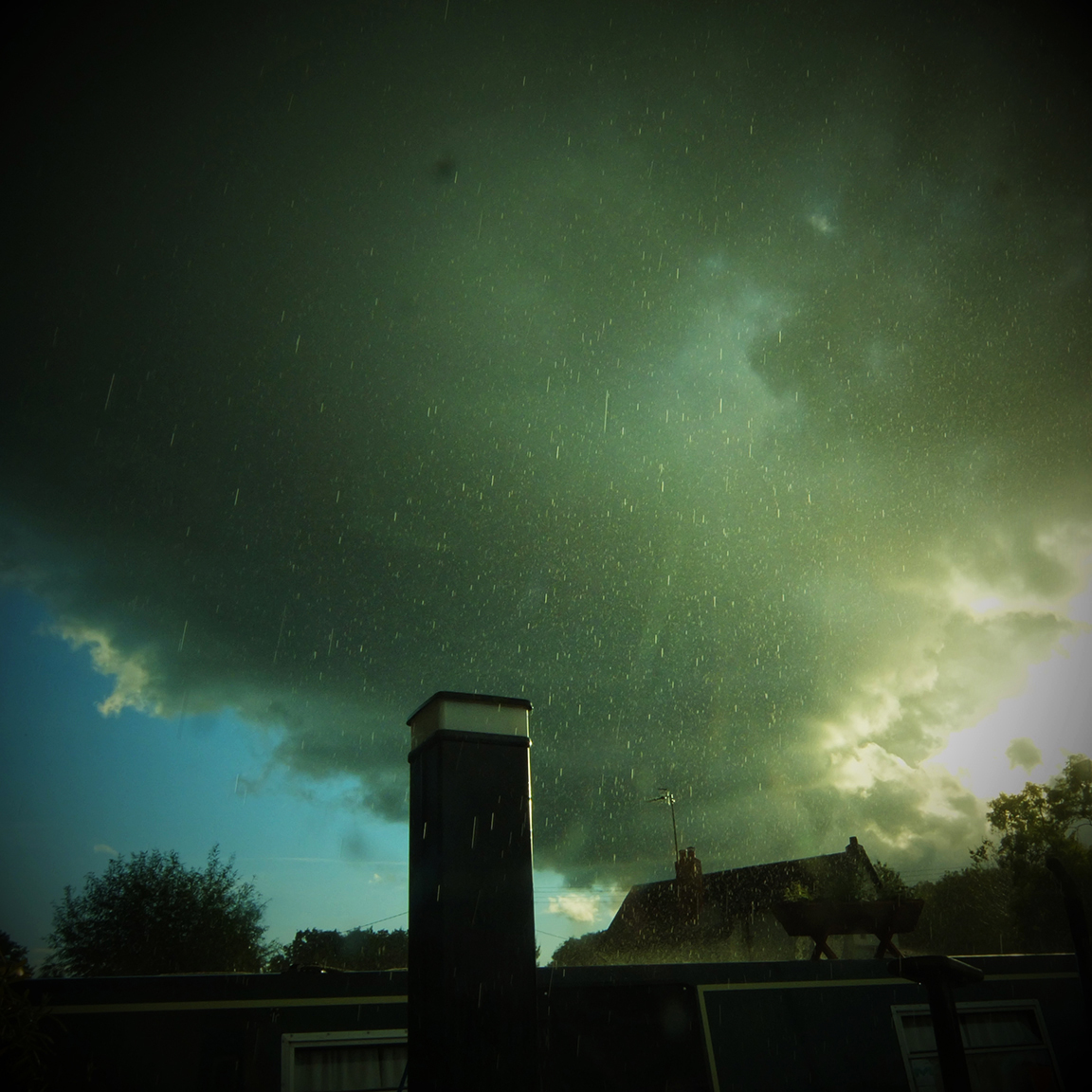
Autumn light and changing colours.







Friends come and go, for a day or a weekend to absorb the fresh air and long walks in nature.
Rob, who is a friend of Adnan and works with him at Uni, is staying over night regularly. Natascha prepares food, he brings the booze, quite often two bottles of Prosecco… As we all know, Boris Johnson hapless approach with Brexit negotiations resulted in an insult against the Italians in regard to the UK’s Prosecco consumption. Rob and Nat definitely belong to those who would be badly affected by a strained Prosecco relationship. Why does Johnson keep dropping his mindless gibberish? We can live without Prosecco, of course, the point is, does he [BoJo] honestly think this is getting the negotiations on a constructive trajectory?
But for now, this is the result after one too many… Rob’n’Gucci…

The winter arrived with golden light, frozen canal and mushrooms still growing. It’s difficult to see, but the duck was sliding on a slightly submerged icy layer… duck ice-skating. Rob and Barbara made the photo of us on the bridge, we went to our local pub “The Navigation Inn” for a meal, being hungry after a long walk. As we didn’t know whether the mushrooms are edible we left them, rather than making a mushroom stroganoff on the boat. We wanted to start the new year without stomach ache. Talking of the new year, what will it bring?
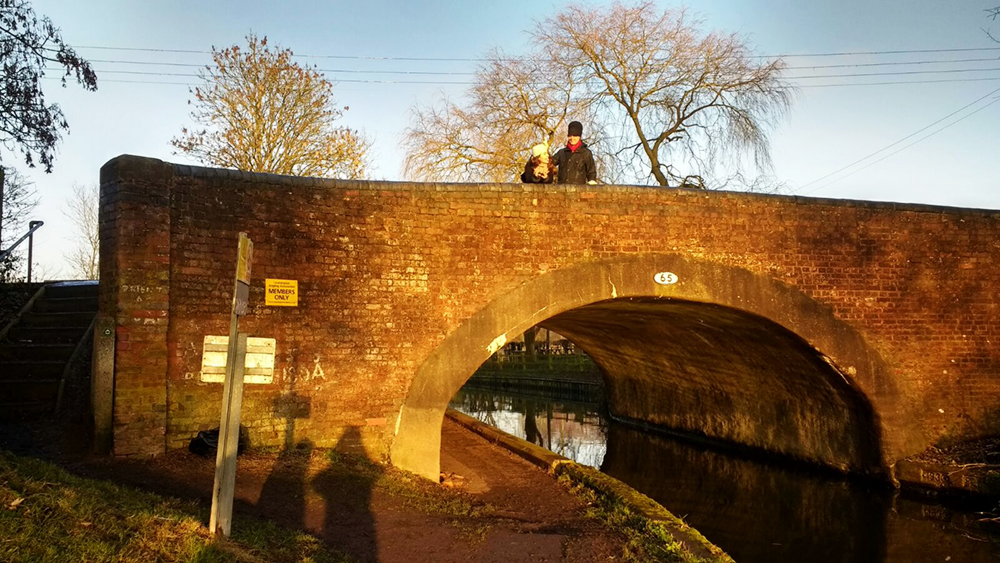


Reflections – Broadway Market, home sweet home?
Now it definitely feels like home! Just shy of one year on the boat & we are back at Broadway Market… but but but mooring up along the canal stretch of Andrews Road is a totally different case than walking along it. The tow path for a bargee is also a lawn or a porch or something the like. But here it feels more like a dog toilet. Frankly, it is unpleasant to stay here and regularly stand in a pile of shit.
The rubbish created along the trendy areas in London is astounding and Broadway Market is one of it. Bargees are regularly reminded that life is a precarious one, rubbish bins are removed so that we don’t know where to dispose of the rubbish that we create. Why is it ok then, that on a sunny Saturday this a mess is created next to the canal?

Not by bargees but by pedestrians along Regents Canal. See the sticker on the rubbish bin? This bin is maintained by the CRT and is meant for bargees too.
This is a part of Regent’s Canal where you can only stay for seven days, though we weren’t too sad when those days were up. We went up Acton Lock opposite the newly created Talavera Mooring, a prime CRT property. Bargee hyper-commercialization at its worst. A bidding system was introduced for that mooring, eleven berths went to the highest bidders. Some went for over £1000 / month. It seems that the house price madness affects the fixed moorings in this area too, or is it just an opportunistic venture?
Reflections on Bargee Life 2
Not long ago Natascha had a chat with the chap from the coal boat, she moaned about the overcrowded canal network in London and that the CRT (Canal & River Trust) are not really supporting bargees in town, how bad the facilities are, etc. Just a good old moan because life as a bargee isn’t always that romantic. He replied that the canal network is too old and can hardly cater for the masses of boats going up and down the locks and apparently this constant movement puts a strain on them. Fair point.
A thought that crossed Nat’s mind many times, is that somehow the bargee community isn’t as such respected by the society, rather vilified sometimes. When she arrived in London back in 2002, the Regents Canal was a no-go area at night, way too dangerous. It got safer with the arrival of the boater community, we believe, though the odd disturbed mind was still around and making peoples life a problem, for sure.
Another thing that we really find problematic is, that, the bargee way of life should be regarded as an enrichment for society. Is there any where in Europe such a community of “water gypsies”? We don’t think so. Hence, why not cherish, support and even protect it?
A beautiful three minute film on boater life from “The Guardian“:
Reflections on Bargee Life 1
It’s a fact, there are more and more people moving onto boats in and around London, for a simple but sad reason: renting has become too expensive.
What do you do, if you lived all your life or a major part of you life in London, have work here, a social network (as in ‘real’ people) – you don’t want to move to some place where it’s affordable to rent and leave all behind?! So, the next step is you get yourself a boat. And some boaters really are poor, so they end up with ‘yoghurt pots’, plastic boats. It’s cold but at least there is a shell around the body and you are not homeless.
We belong to the affluent boaters, we can buy coal, diesel and we can bring Quintessence to the mechanic if something goes wrong, etc. Fellow boaters simply can’t do that and if the engine breaks down, or worse no money for diesel, they can’t move. Then you have the friendly guys from the CRT enforcement team who regularly come with their shiny computerized toys to check our license if we did the moving bit too. And beware you overstayed for a day or two, an email will land in your inbox with the request to move on, else… well, else if you get a reminder once or twice or more, the CRT will issue only a temporary license for the next renewal. The temporary license is more expensive. Boaters are obliged to move regularly, otherwise the license will be revoked and if you don’t get your boat out of the water yourself, they will do it for you. Not only that, it will properly be disposed of, as in compressed like an old car. Good bye.
It is clear to us, the problem the CRT is faced with, is that the housing crisis is being partially rolled over to them. The waterways are quite old and some of them in dire need for restoration. Maybe there are also too many boats in and around the Londoner waterways, but why do get those large Widebeams or massive Dutch barges access to precisely those waterways? They really take up a lot of space and quite annoyingly quite a lot of those shiny new barges (or canal ‘vessels’) belong to weekend boaters. You can see that if you are a live-a-board, no lights during the week, comes the weekend and the light goes no. Frankly, if you can afford such a barge and not live on it, what kind of property do they occupy during the week?! But in essence our point is, large boats should not be allowed in central London.

